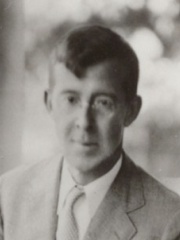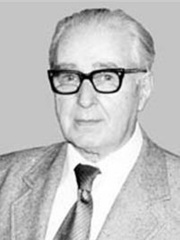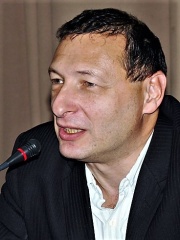


The Most Famous
SOCIOLOGISTS from Russia
This page contains a list of the greatest Russian Sociologists. The pantheon dataset contains 79 Sociologists, 3 of which were born in Russia. This makes Russia the birth place of the 7th most number of Sociologists behind Poland, and Austria.
Top 3
The following people are considered by Pantheon to be the most legendary Russian Sociologists of all time. This list of famous Russian Sociologists is sorted by HPI (Historical Popularity Index), a metric that aggregates information on a biography's online popularity.

1. Pitirim Sorokin (1889 - 1968)
With an HPI of 69.16, Pitirim Sorokin is the most famous Russian Sociologist. His biography has been translated into 46 different languages on wikipedia.
Pitirim Alexandrovich Sorokin (; Russian: Питирим Александрович Сорокин; 4 February [O.S. 23 January] 1889 – 10 February 1968) was a Russian American sociologist and political activist, who contributed to the social cycle theory. Sorokin was a professor at Saint Petersburg Imperial University, three times imprisoned by the Czarist regime for "revolutionary activity." His active opposition to the Bolsheviks led, after they were in power, to his arrest and sentence to death. Only with the help and intervention of friends, including Thomas Masaryk and Edouard Beneš, was his sentence commuted to permanent exile, which led Sorokin to flee to Czechoslovakia. Moving to the United States, he became a professor of sociology at the University of Minnesota in 1924, and, in 1930, he was hired as head of the newly formed department of sociology at Harvard University.

2. Georges Gurvitch (1894 - 1965)
With an HPI of 64.39, Georges Gurvitch is the 2nd most famous Russian Sociologist. His biography has been translated into 22 different languages.
Georges Gurvitch (Russian: Гео́ргий Дави́дович Гу́рвич; October 20, 1894, Novorossiysk – December 12, 1965, Paris) was a Russian-born French sociologist and jurist. One of the leading sociologists of his time, he was a specialist in the sociology of knowledge. In 1944 he founded the journal Cahiers internationaux de Sociologie. He held a chair in sociology at the Sorbonne in Paris. An outspoken advocate of Algerian decolonization, Gurvitch and his wife were the victim of a terrorist attack by the far-right nationalist group, L'O.A.S. on June 22, 1962. Their apartment was destroyed by a bomb, and they took refuge for a time at the house of painter Marc Chagall. Gurvitch is an important figure in the development of sociology of law. Like other legal sociologists, he insisted that law is not merely the rules or decisions produced, interpreted and enforced by agencies of the state, such as legislatures, courts and police. Groups and communities of various kinds, whether formally structured or informally organised, produce regulation for themselves and others, which can properly be considered law from a sociological standpoint. Gurvitch's legal pluralism is, however, far more rigorous and radical than that of most legal sociologists and locates an immense variety of types of law in the various kinds of sociality—or social interaction—that he distinguished in his writings. He saw the need to stress the reality and significance of social law and social rights, in opposition to what he termed individual law. His Bill of Social Rights, drafted at the end of World War II was an attempt to state a blueprint of a legal framework of social law for a postwar world in which the idea of human rights had become newly powerful. The sociologist and ideologue of the 1979 Iranian revolution Ali Shariati studied under Gurvitch in the 1960s during his studies in France at the University of Sorbonne.

3. Boris Kagarlitsky (b. 1958)
With an HPI of 50.88, Boris Kagarlitsky is the 3rd most famous Russian Sociologist. His biography has been translated into 15 different languages.
Boris Yulyevich Kagarlitsky (Russian: Бори́с Ю́льевич Кагарли́цкий; born 29 August 1958) is a Russian Marxist theoretician and sociologist who has been a political dissident in the Soviet Union and the Russian Federation. He is an associate of the Transnational Institute. Kagarlitsky is the director of Institute of Globalisation Studies and Social Movements (IGSO) and editor in chief of Levaya Politika (Left Politics) quarterly in Moscow. Kagarlitsky founded online platform Rabkor which has a YouTube channel and an online newspaper of the same name.
People
Pantheon has 3 people classified as Russian sociologists born between 1889 and 1958. Of these 3, 1 (33.33%) of them are still alive today. The most famous living Russian sociologists include Boris Kagarlitsky. The most famous deceased Russian sociologists include Pitirim Sorokin, and Georges Gurvitch.

